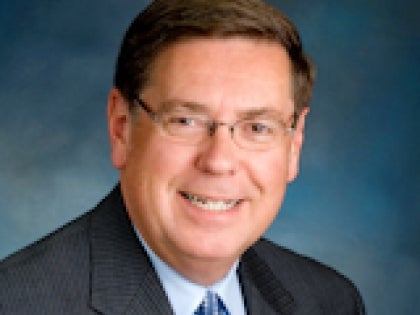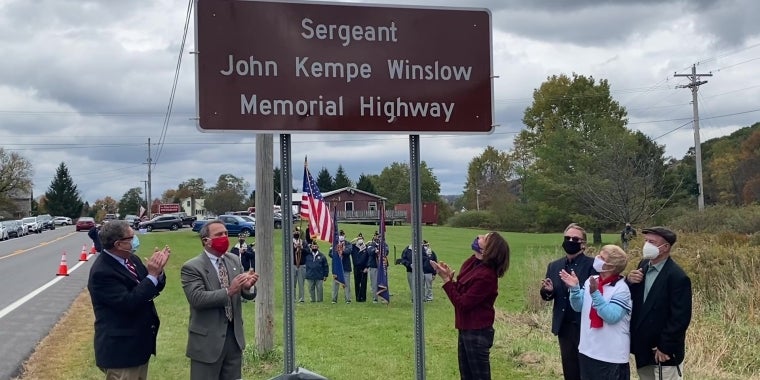
NY Government Merger Bill Draws Criticism
The Daily Mail
By Susan Campriello
CATSKILL — State legislators representing Greene County agreed that consolidation of municipal governments and services could alleviate property tax increases, but hope certain changes can be made to the bill before it is sent to Gov. David A. Paterson for signature.
The New N.Y. Government Reorganization and Citizen Empowerment Act passed a June 1 state Senate vote of 46-16.
It passed a June 3 vote in the state Assembly of 118-26.
State Sen. James L. Seward, R-Oneonta, who voted against the measure, said he liked the idea of consolidating governments but was unhappy with two details laid out in the plans.
“With some tweaking, I could have supported it,” he said.
The Senate bill requires a vote to be held if a petition containing the names of 10 percent of the voting population is submitted.
If the measure is approved by a majority vote, a municipality can develop a consolidation plan. If that plan is rejected, another petition can be circulated. Twenty-five percent of the electorate must sign the second petition for consolidation to be considered again.
Under the new rules, debts, liabilities and obligations of the dissolved government would be assumed by the town in which the dissolved government was situated. The debts and liabilities will be charged on the taxable properties within the limits of the dissolved entity.
Seward said he would prefer a consolidation plan or a cost-benefit analysis before the initial vote.
Residents should know how services will be delivered and whether a municipal consolidation will save money, he said.
“Those questions ought to be answered before anybody votes on consolidation,” he said. “That would have a lot of bearing on whether or not it would be supported.”
He said only one vote should occur.
Seward said he is uncomfortable with the inclusion of fire districts and library districts in the bill. Fire districts can already be large, he said, and the burden on volunteer firefighters could grow if they have to travel great distances from one end of a consolidated district to another.
He noted that many communities already participate in mutual aid agreements that allow for a number of different companies to respond to a major emergency.
Assemblyman Tim Gordon, I-Bethlehem, voted in favor of the legislation although he also saw room for improvement.
He said what he has heard from constituents about the need to lower real property taxes influenced his support for the bill.
“This bill is designed to reduce the number of layers of government in order to achieve that,” he said.
But he agreed with Seward that the reorganization of fire districts should have been discarded.
He said consolidating districts could discourage individuals from volunteering with fire companies.
Mutual aid agreements have allowed fire companies to work together when necessary while remaining separate, said Gordon, who is a volunteer firefighter.
Gordon also wants the petition threshold raised to 25 percent of the electorate in municipalities of 2,000 residents or less.
He worries that the bill could become a political tool.
“Malcontents who have an ax to grind could use the provisions for no other purpose than to wreak havoc,” he said.
Assemblyman Pete Lopez, R-Schoharie, said the decision to favor what he called “imperfect legislation” was very difficult.
Lopez supported the measure based on the possibility that consolidation could control the growth of property taxes, but he identified several points in the legislation he thinks can be improved.
Lopez said he was still discussing the petition threshold with constituents and colleagues but that a study should be conducted and considered before consolidation was put to a vote.
The Assembly bill requires that a study and recommendations for the consolidation plan within six months of a consolidation petition being filed.
Lopez said this schedule is unrealistic because of all the other demands on a part-time official’s time and energy.
“Six months is a pretty tight timeframe for a local government,” he said.
A well-researched study could take a year to conduct, he said.
The state could help subsidize the costs of conducting consolidation studies and of developing consolidation plans, he said, because the burden should not be laid at the feet of local governments.
“The state is a critical partner here, too,” he said.
Lopez also said that cost-saving measures need not be limited to local government consolidation and the state should act as a model for municipalities.
For example, he said, school districts could share equipment and space, such as garages, with municipalities if state Department of Education rules did not prohibit such agreements.
Lopez said any discussion of consolidation should focus on whether services will be maintained or improved and whether the consolidation will be cost-effective.
“Simply absorbing may not always be the most cost-effective or best solution. Bigger is not always better,” he said. “We cannot get caught in something just because it sounds trendy.”
Seward said he has heard that Attorney General Andrew M. Cuomo, who campaigned for passage of the legislation, may sponsor some amendments to the legislation that could fix what he sees as problem areas.
“We could have made the bill better and I hope that will happen before it becomes law,” Seward said.



